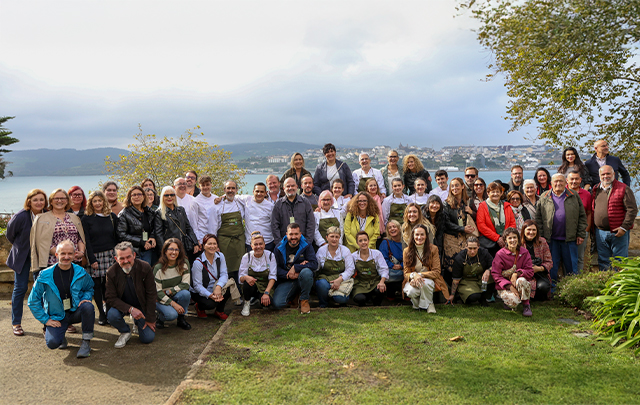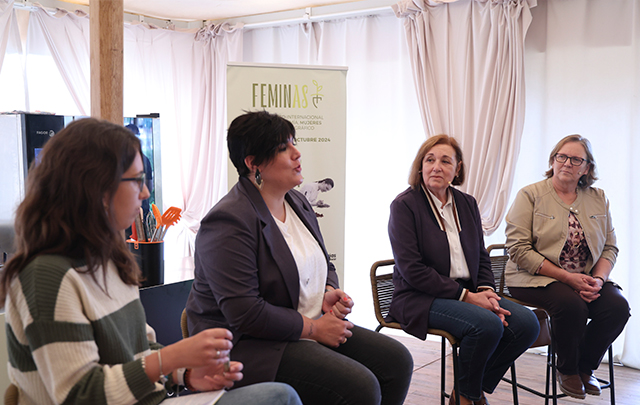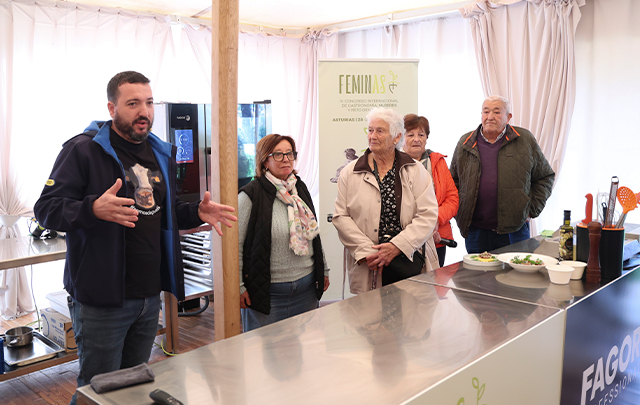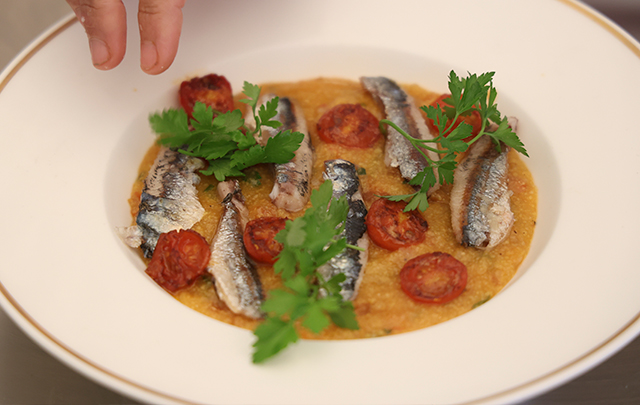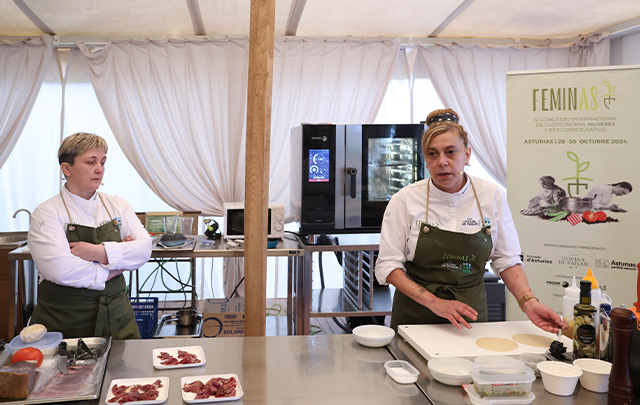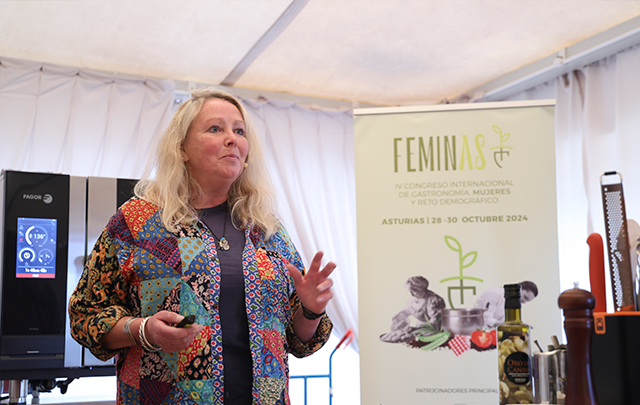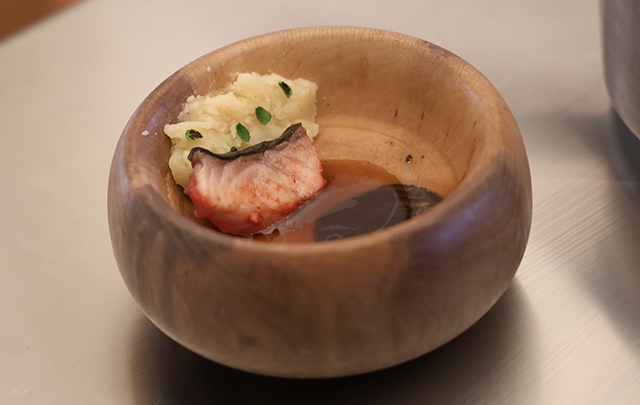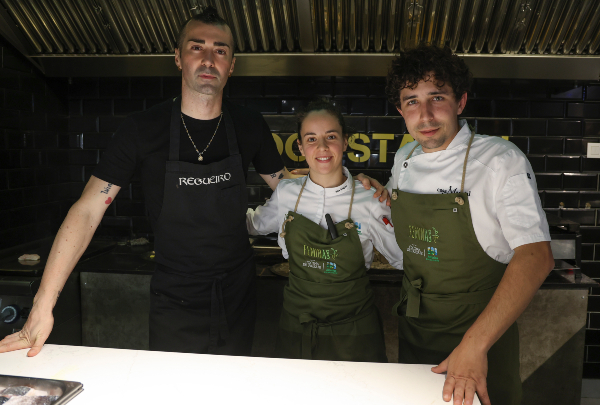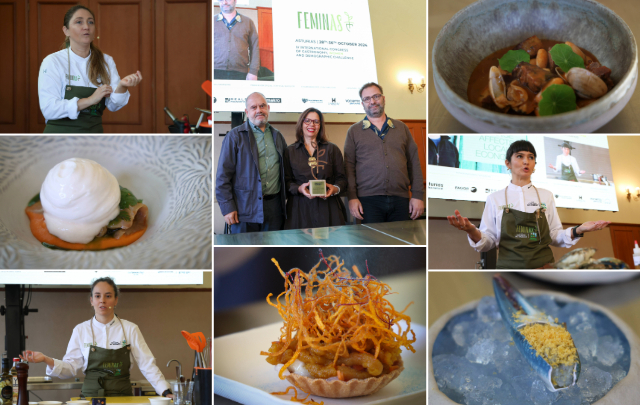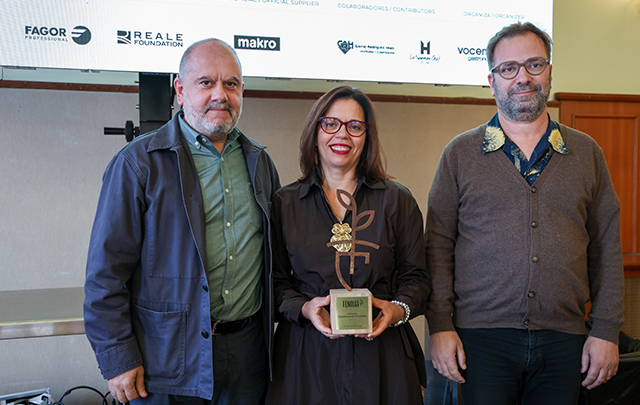News
Three artisanal cheesemakers demonstrate that it is possible to turn the traditional into something revolutionary
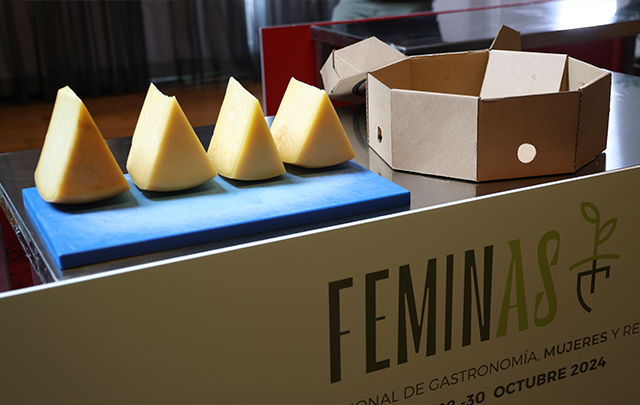
With the help of the largest cheese importer in the USA, the first Féminas panel discussion will focus on the potential of the local product in the fight against rural depopulation.
For Michele Buster, founder of Forever Cheese, which imports cheeses and speciality products from Italy, Spain, Portugal, Croatia and Switzerland, the most important thing is "not only to appreciate the product, but also what's behind it, the land and, above all, the people. For me, the products I work with are like my children,' says the woman who is undoubtedly one of the world's leading figures in the cheese industry. A member of the prestigious International Guild of Fromagers, en Féminas, she has organised an interesting panel, bringing together three artisan cheese makers from different parts of Europe, but with many things in common, above all a rural environment threatened by depopulation to the point where traditions are dying out.
Carmela Cano, who makes the prestigious Galmesán cheese in the town of Arzúa in A Coruña, "a cheese that we make thanks to the work of 27 small livestock farmers in extensive pastures, and whose uniqueness lies in the fact that it is a product that speaks of its territory, as we use only local ingredients in its production". A native of Pontevedra, Carmela came from big business and the city to settle in the village, an experience that showed her "that it is possible to create revolutionary rural industries, because today traditional production models are more sustainable, more profitable and they are modern". What is needed to make them sustainable? We, as rural entrepreneurs who have achieved this, have a duty to promote their attractiveness in order to motivate the new generations," she explained.
For Martina Pernar, the key is also to convince young people to get involved in the countryside and preserve the industry, but "it's very complicated because other sectors, like tourism in our case, are more attractive to them because they earn more money and the work is not so hard," she argues. Martina is the manager of Paska Sirana, the company that produces the exclusive Paški sir PDO. This is a 100% sheep's milk cheese that can only be produced on the island of Pag, on the Adriatic coast, which has put its territory on the world map. The climatic conditions of our island, with winds that bring the salt of the Adriatic to the pastures, make our cheese unique, and we must preserve this heritage of which we are so proud. To do this, we need the cooperation of the government, which should encourage the involvement of young people in agri-food activities," she said.
Natasha Soares, quality and food safety manager for São Jorge Pio cheese, which is made on the tiny Portuguese island of São Jorge, 'barely 200 kilometres across and with a population of just 800,000', agrees. We work with 200 shepherds, each with no more than 40 cows," she describes. For Natasha, it is essential to combine tradition with progress, "to be able to maintain a 500-year-old tradition", and to defend to the utmost the rurality necessary to produce such a unique cheese. This is why she, like her interviewees, firmly believes that "the government should provide incentives for producers, but also promote the profession in schools, by developing educational plans that include the teaching of herding and milking", she suggested.


